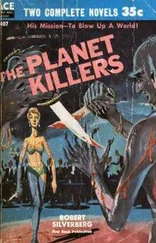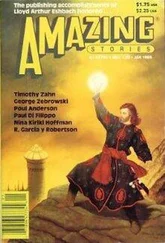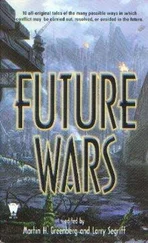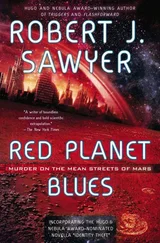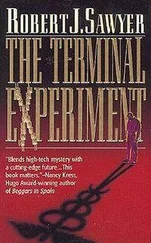Robert Sawyer - The Blue Planet
Здесь есть возможность читать онлайн «Robert Sawyer - The Blue Planet» весь текст электронной книги совершенно бесплатно (целиком полную версию без сокращений). В некоторых случаях можно слушать аудио, скачать через торрент в формате fb2 и присутствует краткое содержание. Год выпуска: 1999, Жанр: Фантастика и фэнтези, на английском языке. Описание произведения, (предисловие) а так же отзывы посетителей доступны на портале библиотеки ЛибКат.
- Название:The Blue Planet
- Автор:
- Жанр:
- Год:1999
- ISBN:нет данных
- Рейтинг книги:4 / 5. Голосов: 1
-
Избранное:Добавить в избранное
- Отзывы:
-
Ваша оценка:
- 80
- 1
- 2
- 3
- 4
- 5
The Blue Planet: краткое содержание, описание и аннотация
Предлагаем к чтению аннотацию, описание, краткое содержание или предисловие (зависит от того, что написал сам автор книги «The Blue Planet»). Если вы не нашли необходимую информацию о книге — напишите в комментариях, мы постараемся отыскать её.
: Canada’s National Newspaper, Saturday, December 11, 1999.
The Blue Planet — читать онлайн бесплатно полную книгу (весь текст) целиком
Ниже представлен текст книги, разбитый по страницам. Система сохранения места последней прочитанной страницы, позволяет с удобством читать онлайн бесплатно книгу «The Blue Planet», без необходимости каждый раз заново искать на чём Вы остановились. Поставьте закладку, и сможете в любой момент перейти на страницу, на которой закончили чтение.
Интервал:
Закладка:
The Blue Planet
by Robert J. Sawyer
The round door to the office in the underground city irised open. “Teltor! Teltor!”
The director of the space-sciences hive swung her eyestalks to look wearily at Dostan, her excitable assistant. “What is it?”
“Another space probe has been detected coming from the third planet.”
“Again?” said Teltor, agitated. She spread her four exoskeletal arms. “But it’s only been a hundred days or so since their last probe.”
“Exactly. Which means this one must have been launched before we dealt with that one.”
Teltor’s eyestalks drooped as she relaxed. The presence of this new probe didn’t mean the people on the blue planet had ignored the message. Still ...
“Is this one a lander, or just another orbiter?”
“It has a streamlined component,” said Dostan. “Presumably it plans to pass through the atmosphere and come to the surface.”
“Where?”
“The south pole, it looks like.”
“And you’re sure there’s no life on board?”
“I’m sure.”
Teltor flexed her triple-fingered hands in resignation. “All right,” she said. “Power up the neutralization projector; we’ll shut this probe off, too.”
That night, Teltor took her young daughter, Delp, up to the surface. The sky overhead was black—almost as black as the interior of the tunnels leading up from the buried city. Both tiny moons were out, but their wan glow did little to obscure the countless stars.
Teltor held one of her daughter’s four hands. No one could come to the surface during the day; the ultraviolet radiation from the sun was deadly. But Teltor was an astronomer—and that was a hard job to do if you always stayed underground.
Young Delp’s eyestalks swung left and right, trying to take in all the magnificence overhead. But, after a few moments, both stalks converged on the bright blue star near the horizon.
“What’s that, Mama?” she asked.
“A lot of people call it the evening star,” said Teltor, “but it’s really another planet. We’re the fourth planet from the sun, and that one’s the third.”
“A whole other planet?” said Delp, her mandibles clicking in incredulity.
“That’s right, dear.”
“Are there any people there?”
“Yes, indeed.”
“How do you know?”
“They’ve been sending space probes here for years.”
“But they haven’t come here in person?”
Teltor moved her lower arms in negation. “No,” she said sadly, “they haven’t.”
“Well, then, why don’t we go see them?”
“We can’t, dear. The third planet has a surface gravity almost three times as strong as ours. Our exoskeletons would crack open there.” Teltor looked at the blue beacon. “No, I’m afraid the only way we’ll ever meet is if they come to us.”
“Dr. Goldin! Dr. Goldin!”
The NASA administrator stopped on the way to his car. Another journalist, no doubt. “Yes?” he said guardedly.
“Dr. Goldin, this is the latest in a series of failed missions to Mars. Doesn’t that prove that your so-called `faster, better, cheaper’ approach to space exploration isn’t working?”
Goldin bristled. “I wouldn’t say that.”
“But surely if we had human beings on the scene, they could deal with the unexpected, no?”
Teltor still thought of Delp as her baby, but she was growing up fast; indeed, she’d already shed her carapace twice.
Fortunately, though, Delp still shared her mother’s fascination with the glories of the night sky. And so, as often as she could, Teltor would take Delp up to the surface. Delp could name many of the constellations now—the zigzag, the giant scoop, the square—and was good at picking out planets, including the glaringly bright fifth one.
But her favorite, always, was planet three.
“Mom,” said Delp—she no longer called her “Mama”—“there’s intelligent life here, and there’s also intelligent life on our nearest neighbor, the blue planet, right?”
Teltor moved her eyestalks in affirmation.
Delp spread her four arms, as if trying to encompass all of the heavens. “Well, if there’s life on two planets so close together, doesn’t that mean the universe must be teeming with other civilizations?”
Teltor dilated her spiracles in gentle laughter. “There’s no native life on the third planet.”
“But you said they’d been sending probes here—”
“Yes, they have. But the life there couldn’t have originated on that world.”
“Why?”
“Do you know why the third planet is blue?”
“It’s mostly covered with liquid water, isn’t it?”
“That’s right,” said Teltor. “And it’s probably been that way since shortly after the solar system formed.”
“So? Our world used to have water on its surface, too.”
“Yes, but the bodies of water here never had any great depth. Studies suggest, though, that the water on the third planet is, and always has been, many biltads deep.”
“So?”
Teltor loved her daughter’s curiosity. “So early in our solar system’s history, both the blue planet and our world would have been constantly pelted by large meteors and comets—the debris left over from the solar system’s formation. And if a meteor hits land or a shallow body of water, heat from the impact might raise temperatures for a short time. But if it hits deep water, the heat would be retained, raising the planet’s temperature for dozens or even grosses of years. A stable environment suitable for the origin of life would have existed here eons before it would have on the third planet. I’m sure life only arose once in this solar system—and that it happened here.”
“But—but how would life get from here to the blue planet?”
“That world has prodigious gravity, remember? Calculations show that a respectable fraction of all the material that has ever been knocked off our world by impacts would eventually get swept up by the blue planet, falling as meteors there. And, of course, many forms of microbes can survive the long periods of freezing that would occur during a voyage through space.”
Delp regarded the blue point of light, her eyestalks quavering with wonder. “So the third planet is really a colony of this world?”
“That’s right. All those who live there now are the children of this planet.”
Rosalind Lee was giving her first press conference since being named the new administrator of NASA. “It’s been five years since we lost the Mars Climate Orbiter and the Mars Polar Lander,” she said. “And, even more significantly, it’s been thirty-five years—over a third of a century!—since Neil Armstrong set foot on the moon. We should follow that giant leap with an even higher jump. For whatever reason, many of the unmanned probes we’ve sent to Mars have failed. It’s time some people went there to find out why.”
The door to Teltor’s office irised open. “Teltor!”
“Yes, Dostan?”
“Another ship has been detected coming from the blue planet—and it’s huge!”
Teltor’s eyestalks flexed in surprise. It had been years since the last one. Still, if the inhabitants of planet three had understood the message—had understood that we didn’t want them dumping mechanical junk on our world, didn’t want them sending robot probes, but rather would only welcome them in person—it would indeed have taken years to prepare for the journey. “Are there signs of life aboard?”
“Yes! Yes, indeed!”
“Track its approach carefully,” said Teltor. “I want to be there when it lands.”
The Bradbury had touched down beside Olympus Mons during the middle of the Martian day. The seven members of the international crew planted flags in the red sand and explored on foot until the sun set.
Читать дальшеИнтервал:
Закладка:
Похожие книги на «The Blue Planet»
Представляем Вашему вниманию похожие книги на «The Blue Planet» списком для выбора. Мы отобрали схожую по названию и смыслу литературу в надежде предоставить читателям больше вариантов отыскать новые, интересные, ещё непрочитанные произведения.
Обсуждение, отзывы о книге «The Blue Planet» и просто собственные мнения читателей. Оставьте ваши комментарии, напишите, что Вы думаете о произведении, его смысле или главных героях. Укажите что конкретно понравилось, а что нет, и почему Вы так считаете.

